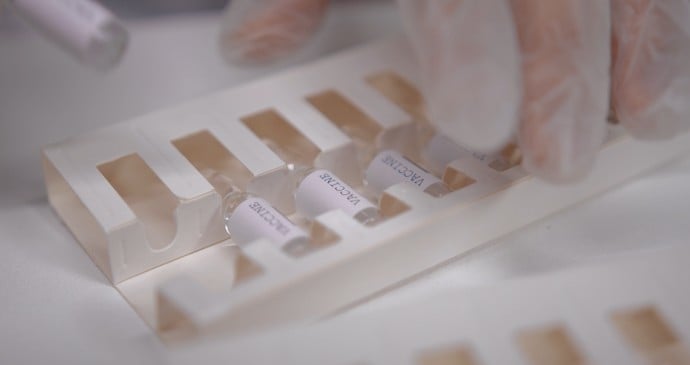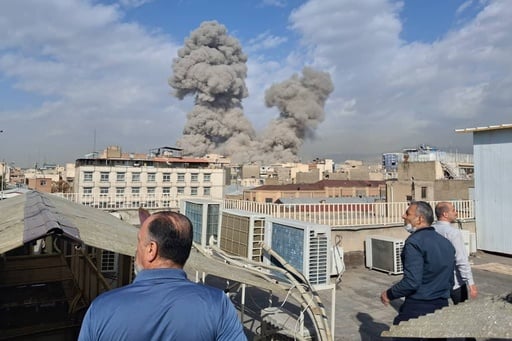“Grandparents for Vaccines” program aims to boost childhood immunization rates

ILLINOIS(KBSI) – According to local health departments and the CDC, the US is continuing to see a decline in children getting vaccinated. Whether this be from false information or parents simply scared to have their children vaccinated health experts say the number of unvaccinated children keeps growing.
Community Health Centers throughout the region are getting a helping hand from an unexpected group- grandparents.
A new program called Grandparents for Vaccines, is connecting seniors to community health clinics and allowing for them to share their stories of what growing up before modern vaccines was like.
Grandparents for Vaccines was started in September of 2025 to help educate the current and next generations on the very real and scary experiences their grandparents lived through without vaccines. Judith Feinberg is a professor of behavioral medicine and psychiatry at West Virginia University. She recalls how every parent in her elementary classroom signed their child up to receive the polio vaccine as soon as it was available because many had experienced the very hard and painful effects of polio.
“It was a real turning point, in, you know, the lives of families in that era and we don’t want to return to that. You know, it was terrifying, and we love our grandkids. We want our grandchildren to be protected. We want everybody’s grandchildren to be protected, and that’s the whole motivation of grandparents for vaccines” says Professor Feinberg.
Shawnna Rhine is the Community Outreach Coordinator of the Southern Seven Health Department.
The CDC confirms what local health departments have been advocating, since 2019 there has been a steady decline in children getting vaccinated. Currently vaccination levels are below the 95% threshold needed to see herd immunity, which essentially means there are enough unvaccinated children to see diseases once gone in the US, come back.
“We are dealing with a current generation of families who are choosing not to vaccinate” says Rhine. “Either they’re vaccine hesitant or they’re making the decision not to vaccinate and a lot of it is because they’re getting false information or inaccurate information, and they’re not talking to their health care providers. We are encouraging them to talk to their doctors about what’s best for them. I mean, we do realize that getting vaccinated is a personal choice, but we want them to make that decision based upon fact.”
Schools have reported seeing a sharp increase in the number of non-medical vaccine exceptions for school children, with some counties reporting exception rates more than doubling in the recent years, Rhine share’s that through the Grandparents for Vaccines Program they hope to provide very real and accurate life experiences of the impacts some of these diseases can have.
“A generation of families that have never seen any of these viruses and these illnesses before, just like she was saying. So we are in a strange time, but the education is there and unfortunately, because of this, diseases are on the rise in our country. We are seeing resurgent and viruses and illnesses that we’ve not seen in decades” says Rhine.
Professor Feinberg says parents should know that life before vaccines was a very scary time when it came to children getting sick.
“What it was like in the 1950s. All the swimming pools were closed. You could not swim because that was a potential way to get polio. Parents were really routinely just terrified. You know, you would hear about somebody in the community who started with symptoms that were like a cold and the next thing you knew, these children were paralyzed. There was a little boy down the block from me in an iron lung. This was very real, very palpable and very, you know, appropriately scary for families” says Feinberg.
If you would like to share your life experience with Grandparents for Vaccines or learn more on the program you can go to their webpage Homepage – Grandparents for Vaccines
Or contact the Southern Seven Health Department of Southern Illinois Home – Southern 7 Health Department


